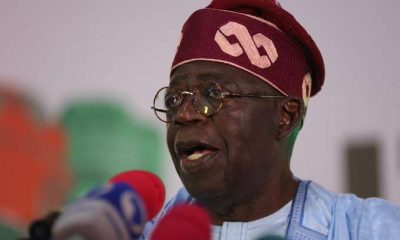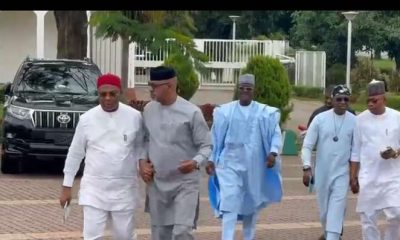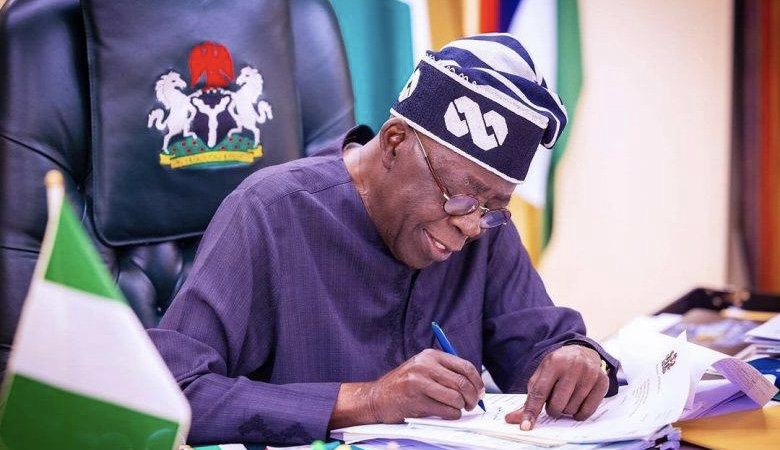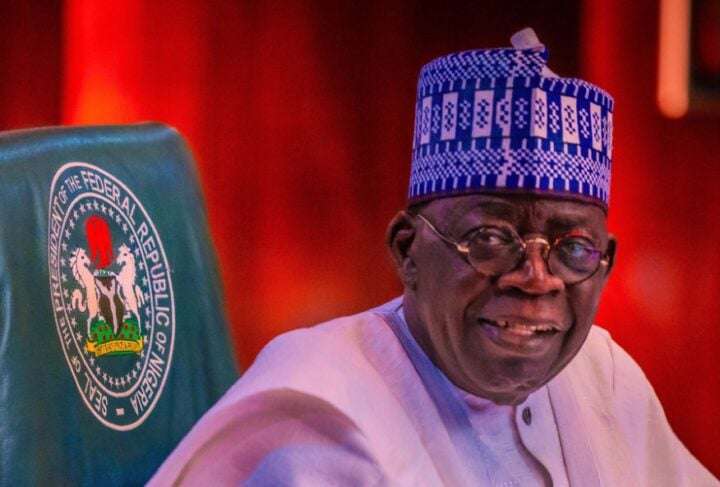Politics
Students’ loan scheme: Tinubu’s unfulfilled promises anger Nigerians

With the sudden indefinite postponement of the much touted Students’ Loan scheme previously promoted by this government, which was their excuse for hikes in tuition fees in the universities, it is becoming apparently clear to most Nigerians that President Tinubu is bent on driving his liberal capitalist policies that are impoverishing the people.
Since coming to power in May 2023, President Bola Ahmed Tinubu had promised Nigerians many goodies, which he said would change the direction of our economy, improve standards of living and put Nigeria on right standing.
However, nine months into his presidency, none of these promises have come to light as Nigerians continue to bear the brunt of high cost of living, economic hardships and infrastructural collapse.
One of the first steps the president took in May last year was the removal of oil subsidy and unification of the foreign exchange rate. Today, the rate of exchange is $1/157.17. This state of affairs has led to rise in prices of commodities, high standards of living among others.
One of the promises Tinubu made was to stabilize the naira, up till now, it has continued to wobble and fumble as dollar continues to crush it. All efforts made by the Central Bank of Nigeria governor, Yemi Cardoso, to bring back the naira have failed
In August 2023, the administration of President Bola Tinubu said it would invest N100 billion between that time and March 2024, to acquire 3,000 units of 20-seater buses powered by compressed natural gas, CNG.
Up till now, the promise has been a promise as no concrete action has been taken to bring it into actualization. In the event of non action, Nigerians have continued to grapple with high cost of transportation.
The Nigerian Labour has been pressuring government to pay a minimum wage, up till now FG has not done anything after promising to do readjustment to favour workers. This has led to labour unrest, given the high cost of Living. In order to assuage the anger of labour government decided to pay N35000 temporarily wage award for six months to cushion the effects of subsidy removal.
In the face of rising hunger in the land, part of the solution, the Tinubu’s administration promised Nigerians was the release of grains from federal reserve. Three weeks after President Tinubu directed the Ministry of Agriculture and Food Security to release 42,000 metric tons of maize, millet, 64000 Mt of rice, and other commodities from the national strategic reserve to Nigerians for free, the items are yet to be distributed.
This is amidst the biting cost of living crisis in the country, which is believed to be largely caused by the present administration’s policies of petrol subsidy removal and currency floating.
The president’s directive to release grains to the citizens was aimed at addressing hunger which had triggered protests in some states.
Following the directive given on February 8, the Minister of Agriculture and Food Security, Abubakar Kyari, at a press conference in Abuja, said grains would be distributed free to poor Nigerians. Kyari said, “This 42,000MT is going to the needy free of charge. It will be directly to the needy at no cost.”
The President has also promised millions of jobs but no concrete steps have been taken in the direction of job creation. Tinubu had disclosed that his administration will create millions of jobs by unlocking the value of Nigeria’s vast public assets with a view to optimizing and doubling the country’s Gross Domestic Product (GDP).
According to him, with economic revitalisation as its top priority, the federal government has a target of raising at least $10 billion in order to increase foreign exchange liquidity that will, in turn, stabilise the Naira.
President Tinubu made this disclosure in Abuja recently at the inaugural Public Wealth Management Conference with the theme, “Championing Nigeria’s Economic Prosperity”, organized by the Ministry of Finance Incorporated (MOFI).
The President who was represented at the event by Vice President Kashim Shettima, highlighted a low-hanging fruit of identifying, consolidating and maximizing returns on government-owned assets worth trillions of naira.
He said: “The Federal Government set a goal to raise at least $10 billion in order to increase foreign exchange liquidity, a key ingredient to stabilise the Naira and grow the economy.
In July 2023, the administration announced its plan to revitalize refineries.
Group Managing Director of Nigerian National Petroleum Company Limited, Mele Kyari, who disclosed this, said that the administration of President Bola Tinubu will rehabilitate one of the country’s refineries before the end of the year. Kyari said this when he visited the secretariat of the All Progressives Congress (APC) for a meeting with the party’s National Chairman, Senator Abdullahi Adamu.
Up till now, none of our refineries is working.
It’s been seven months since President Bola Tinubu pledged to energise the Micro, Small and Medium Enterprises (MSME) and the manufacturing sector to cushion the impacts of petrol subsidy removal and naira devaluation.
But so far, 734 businesses in Africa’s biggest economy have closed down, as they are yet to see any evidence of the funds. They are yet to know the criteria for disbursement, the requirements, terms and conditions, prospects and the agencies that will disburse the funds.
“What we just have is the announcement and nothing beyond that. There is no evidence that the funds have been released to the implementing agencies for the N125 billion for the MSMEs and the N75 billion for manufacturers,” Gabriel Idahosa, president of Lagos Chamber of Commerce and Industry (LCCI), said.
He said when the president made the announcement, the chamber advised that the implementation of intervention funds should be done very fast but that has not happened.
“If the money was released in June, for the whole of July, the implementing agencies would have rolled out the processes on how to apply and the conditions for it. And by the beginning of August, most businesses should have been able to access those funds,” he added.
Tinubu had promised students loan and the National Assembly had passed the bill while the president has since signed it into law. It was first scheduled to begin in September, before it was shifted to February, up till today it has not become operational.
The idea is to afford indigent students opportunity to continue their education.
Recall that Tinubu, while delivering his inaugural speech amidst cheers from his supporters, outlined the key initiatives to be anticipated from his administration and placed significant emphasis on fulfilling his campaign promises.
Security is a great concern to many Nigerians; President Tinubu pledged to prioritise security and effectively tackle the menace of insecurity.
“Security shall be the top priority of our administration because neither prosperity nor justice can prevail amidst insecurity and violence.
“To effectively tackle this menace, we shall reform both our security Doctrine and its Architecture.
“We shall invest more in our security personnel, and this means more than an increase in number. We shall provide better training, equipment, pay and firepower.”
As of today, the security situation has worsened more than the Buhari era, and government, despite efforts to stem the tide of insecurity, the menace has defied solution. Last week alone, more than 600 people were abducted in Kaduna and Borno states, and several killed.
The President said his administration will target a higher GDP growth and significantly reduce unemployment.
Tinubu vowed to increase Nigeria’s gross domestic product (GDP) by at least six per cent annually. He noted that he will achieve that by taking the following steps:
“First, budgetary reform, stimulating the economy without engendering inflation will be instituted.
“Second, industrial policy will utilise the full range of fiscal measures to promote domestic manufacturing and lessen import dependency.
“Third, electricity will become more accessible and affordable to businesses and homes alike. Power generation should nearly double, and transmission and distribution networks improved. We will encourage states to develop local sources as well.
“I have a message for our investors, local and foreign: our government shall review all their complaints about multiple taxations and various anti-investment inhibitions.
“We shall ensure that investors and foreign businesses repatriate their hard earned dividends and profits home.”
Up till now, none of the above has taken place, leaving Nigerians bewildered. The power sector has virtually collapsed with output barely up to 3000MW, and several grid collapse in nine months. On budget reform, his two budgets so far were steeped in corruption controversies. Just last, Senator Abdul Ningi was suspended for raising alarm over N3 trillion budget padding in the 2024 appropriation. Nothing seems to have changed.
On job creation, Tinubu vowed to create meaningful opportunities for youths to reduce the unemployment rate in the country. He promised that his administration would create one million jobs through the digital economy for the teeming youths in Nigeria.
“My administration must create meaningful opportunities for our youth. We shall honour our campaign commitment of one million new jobs in the digital economy.
Reacting to inability to fulfill promises, Prof. Mohammed Sani noted that “the administration has already caused a disruption in the economy through knee jerk removal of subsidy on the day he was sworn in, as market immediately reacted negatively to it. It will be difficult for him to redress the situation given that he has consistently allowed politics to trump economy in his calculation.
Prof. Adeagbo Moritiwon, a political scientist, agreed with Sani’, and added that “untill Tinubu assembles experts, who understand the economy as advisers, until he weans himself from political calculation and the idea of 2027, he may not be able to fulfill most of the promises outlined.










